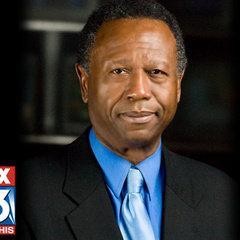Perhaps, more than anyone else I ever met, the late William Otis “Bill” Little understood the parameters entailed in being anointed the title of “coach.” His death last month at the age of 79 brought back memories of his befriending me when I arrived in Memphis 30 years ago as a sports reporter. We periodically met while covering the same stories on the high school athletics scene and the then-Memphis State Tiger basketball squads. A mutual admiration and our comfort level with each other soon developed to the point he’d just refer to me as “Smitty,” and I called him “Still Bill.” But it was mostly through other acquaintances that I learned what an icon in the African-American community Bill really was.

When we met, he was the sports editor for the Tri-State Defender. But his impressive resume included being a player with the Memphis Red Sox in the Negro Baseball League. He led high school baseball and basketball championship teams in 28 years of coaching. He was a respected referee in college football circles, including the SWAC Conference for 30 years. However, he always downplayed the subject of his accomplishments. Instead he opted to discuss his belief in the importance of mentoring young minds and the powerful opportunity coaches have to fill voids in those lives with positive reinforcement of ethics and values. Never once did he refer to the stale sports cliché “winning is everything.”
What my friend Bill did acknowledge — and indoctrinated in me — was the steadfast bond between this community and the fortunes of Tiger basketball. It is as if by some Siamese twins connection we collectively shared the euphoria generated by their victories and the plunge into massive depression when they lost.
Let’s be honest. The Grizzlies could win a string of NBA championships and they would never totally wrest away Memphians’ hearts from those who don the blue and gray. The Tigers are our continuing soap opera, bringing us pain, joy, disgust, elation, and frustration. We never seem to get enough of praising or ridiculing. Though players come and go in our hearts, we tend to focus our most rabid analysis on the man with the title “coach.”
In the three decades I’ve been here, whether on the sports beat or not, I have formulated my own opinions on the men chosen to assume the reins of Tiger basketball leadership. I was not a great fan of the late Dana Kirk. His self-promotion was disturbing, as well as a precursor to the disaster he would eventually leave behind for his successor, Larry Finch, to deal with. The homegrown Finch, like his mentor, Gene Bartow, was a man who truly cared about the players he recruited. No, he wasn’t the best “X’s and O’s” coach when it came to on-court strategy, but he tried to make sure the emphasis was correctly placed on the term “student-athlete.”
Tic Price was a walking disaster. Interim head coach Johnny Jones has since proven elsewhere that he might have been the one that got away. Coach Cal? Let’s just say no other coach in college athletics knows more about manipulating the psyche of the African-American collegiate athlete. Feed their egos and their dreams to get them to win. Throw them under the bus as undisciplined morons when they lose. Bobby Knight had him pegged right all along.
I do not doubt the sincerity of Josh Pastner’s passion for the welfare of his players or his allegiance to the University of Memphis. I don’t doubt he frets into the wee hours of the night about what he can do to make his team a cohesive unit, one as dedicated as he is to the task of making Tiger fans proud. At this point, you’re figuring there’s going to be a “but” placed in here somewhere? No. Instead, listen, Tiger fans:
If the team gets wiped out in the first round of the tournament, the sun will still come up the next day. A single jobless mother of three in Memphis will still wake up and wonder how she’s going to feed her kids. A father will worry about how he’s going to pay for his son’s college tuition. Someone will be murdered. Rape kits will remain untested. Babies will be born.
My mentor, Bill Little, a man who embraced sports his whole life, understood its triviality in the biggest game we all play. “Winning isn’t everything” if it teaches you nothing about the things that truly count in life.